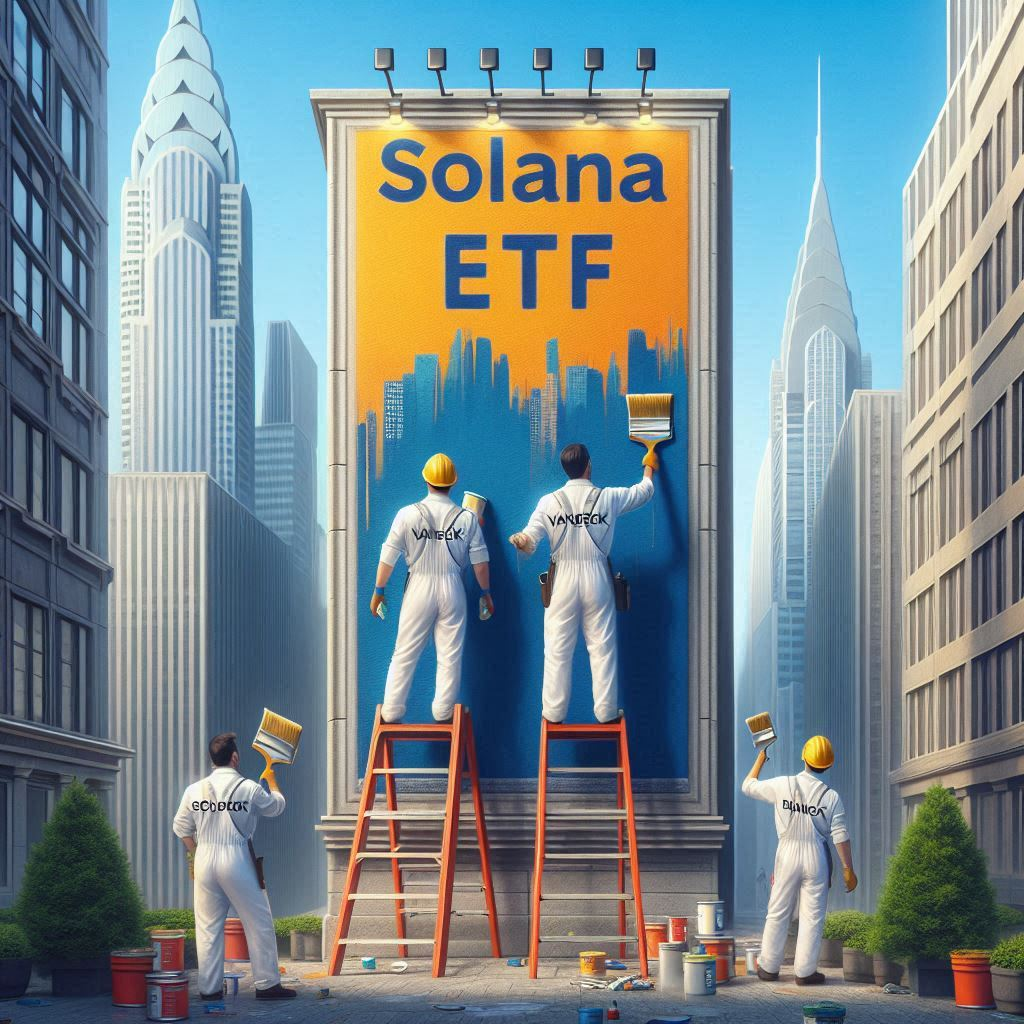Global investment management firm VanEck, in a move that hаs sent ripples through the crypto world, has filed for a spot Solana (SOL) exchange-traded fund (ETF).
This audacious move not only reignites the debate around the regulatory landscape for crypto ETFs but also highlights a burgeoning institutional interest in Solana and the broader cryptocurrency market.
VanEck’s decision to focus on Solana is rooted on the blockchain’s unique tеchnological attributes and expanding ecosystem. Matthew Siegel, VanEck’s head of digital asset research, emphasized Solana’s high scalability, impressive transaction speeds, and minimal fees, positioning it as a potential “Ethereum competitor.”
Solana’s robust security mechanism, which combines proof-of-history and proof-of-stake, and its thriving ecosystem of decentralized finance (DeFi) and non-fungible token (NFT) applications further bolster its appeal.

VanEck’s core argument rests on the belief that SOL, Solana’s native token, mirrors the functionality of established digital commodities like Bitcoin and Ethereum. They assert that SOL’s utility for transaction fees, computational services, and its tradability across various platforms solidifies its status as a valuable digital commodity. This assertion is further bolstered by Solana’s decentralized nature, supported by a global network of independent validators.
The SEC had classified SOL as a security last year.
“We believe the native tokеn, SOL, functions similarly to other digital cоmmodities such as #bitcoin and #ETH. It is utilized to pay for transaction fees and computational services on the blockchain. Like ether on the Ethereum network, SOL can be traded on digital asset platforms or used in peer-to-peer transactions,” Siegel said.
Related: Kusama Reveals Details Of New AI Product in Recent Livestream

The VanEck Solana ETF filing has elicited a spectrum of responses from industry experts. Bloomberg Intelligence ETF analyst Eric Balchunas, while acknowledging the current regulatory hurdles to approval, suggested that a potential shift in the political landscape could pave the way for such products.
James Seyffart, another Bloomberg ETF analyst, added, “First SOL ETF filing in the U.S. Will be interesting to see if other issuers immediately follow suit. Early thoughts are that this only has a shot to launch sometime in 2025 if we have a new admin in the White House and SEC. Even then not guaranteed.”
The Biden administration and the SEC are seen as hostile to crypto but that could be changing as the president, behind presumptive Republican nominee Donald Trump in polls, tries to show a more friendlier face to crypto. Trump has set the pace by embracing crypto, with his campaign accepting donations in Shiba Inu and other cryptocurrencies.
However, the Solana ETF filing has also raised concerns. Adam Cochran, managing partner at the the niche venture fund Cinneamhain Ventures, expressed reservations about the timing, citing ongoing regulatory uncertainties surrounding Solana. Conversely, ETF President Nate Geraci lauded VanEck’s move as a strategic step in the right direction, regardless of immediate approval prospects.
Finance lawyer Scott Johnson delved into the broader implications of the Solana ETF filing, suggesting it could influence the 2024 U.S. Presidential election and potentially lead to a more favorable regulatory climate for crypto ETFs.
Related: Shiba Inu Secures Victory on CoinGecko with New Page Update
Further underscoring Solana’s growing prominence, Canadian digital asset manager 3iQ has also entered the fray. The firm’s preliminary prospectus filing for the Solana Fund (QSOL) in Canada signals a significant stride toward the potential launch of North America’s first Solana ETF. This development amplifies the rising institutional interest in Solana and reinforces its position as a formidable contender in the cryptocurrency arena.
While the immediate fate of these Solana ETF filings hangs in the balance, its implications are far-reaching. It ignites renewed discussions about the future of crypto-based financial products and their potential to gain mainstream acceptance. The journey toward widespread adoption of crypto ETFs may be fraught with regulatory challenges, but the growing institutional interest in Solana and other cryptocurrencies suggests a promising future for this asset class.












